21, September 2018
Vietnamese President Quang dead at 61 0
Vietnam’s President Tran Dai Quang died Friday at age 61 after a prolonged and serious illness, state media reported. He passed away from a “serious illness despite devoted treatment by professors and doctors” both in Vietnam and abroad, the official Vietnam News Agency said.
In office as president since April 2016 after more than four decades at the powerful Ministry of Public Security, Quang had a reputation as a tough leader with little tolerance for dissent.
Though he held one of the country’s top four positions and was officially the head of state, his role as president was seen as largely ceremonial, greeting visiting leaders and hosting diplomatic events in a bid to boost Vietnam’s profile on the world stage.
Quang had appeared thin and pale in public, and was unstable on his feet last week when he hosted a welcoming ceremony for Indonesian President Joko Widodo in Hanoi last week.
His last public appearance was just two days ago, at a meeting with visiting Chinese politicians and foreign dignitaries in Hanoi.
Quang, a member of the Politburo, had a reputation as tough and influential in the inner circles of the communist party, though often appeared uncomfortable in the public eye and lacked the charisma of some of his peers in the upper echelons of the party.
In an interview with AFP in 2016 ahead of a visit by the former French leader Francois Hollande, Quang read from a prepared statement and was quickly escorted from the room by staff when a question went off-script. State media made a somber announcement of his death Friday and celebrated his long commitment to public service.
His time in office was dominated by a simmering conflict with Beijing over the South China Sea, a long-running dispute between the communist neighbours that escalated on several occasions. Vietnam cancelled at least one oil drilling project in the resource-rich region during Quang’s tenure in an apparent bid to quell tensions.
He was the administration’s most public face at a series of high-profile events, most notably at an APEC meeting in Danang in November last year where he hosted a bevy of world leaders including US President Donald Trump and China’s Xi Jinping.
As president, he oversaw a crackdown on dissidents that rights groups have decried as a chokehold on free expression. More than 40 people were jailed this year and some 100 have been behind bars as of April 2018, according to Amnesty International.
(AFP)
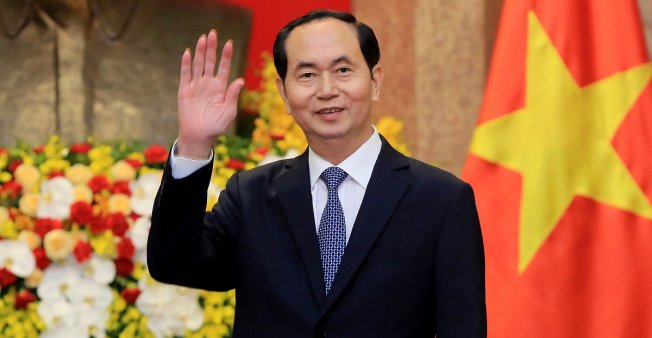
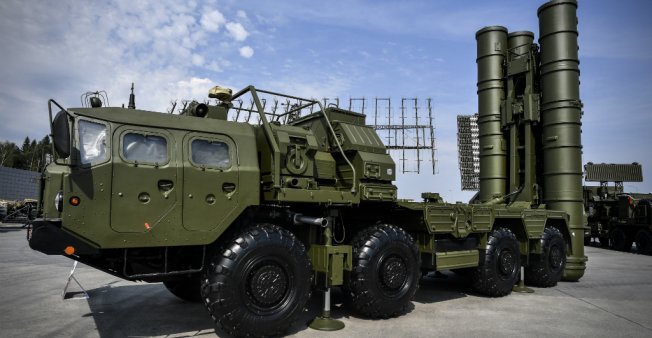
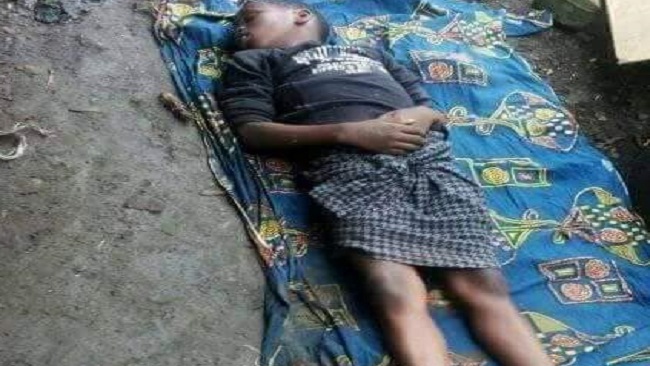
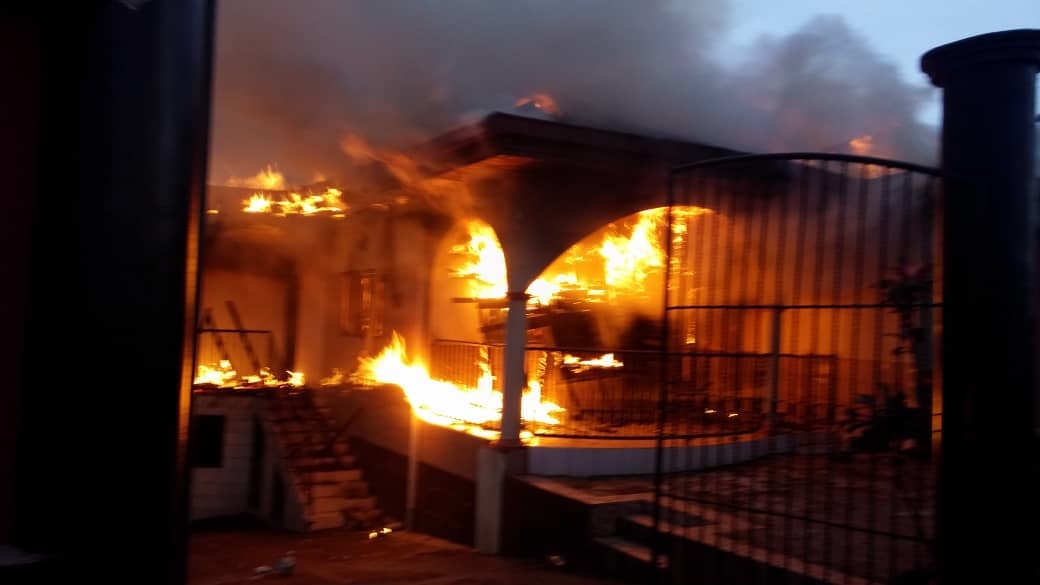
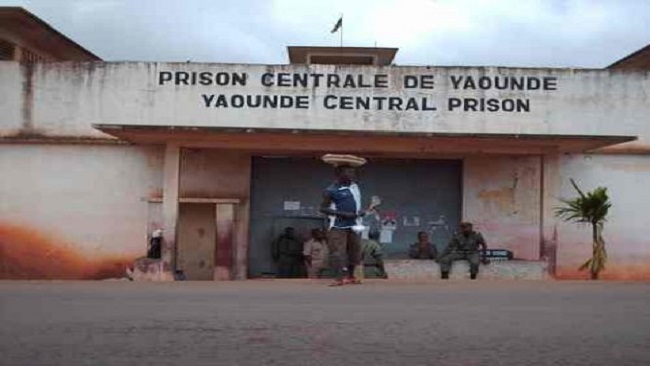
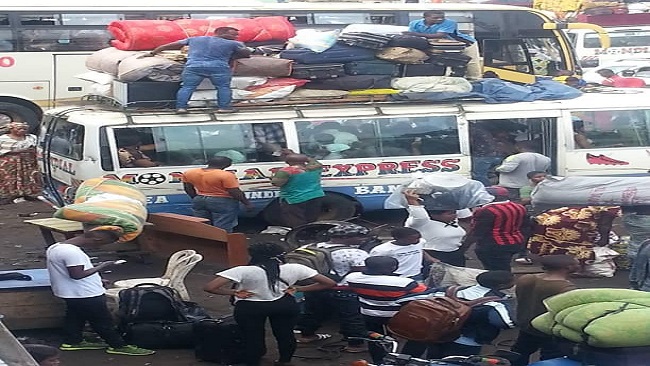

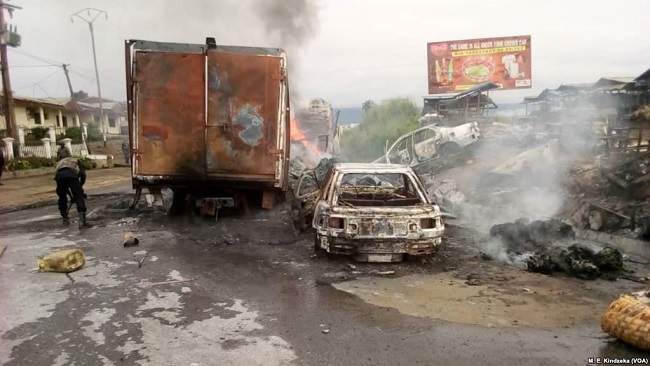

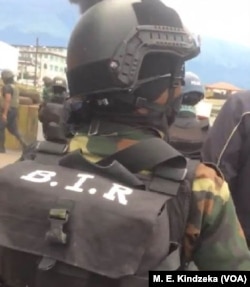

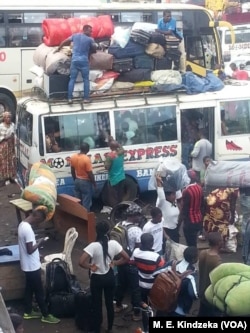



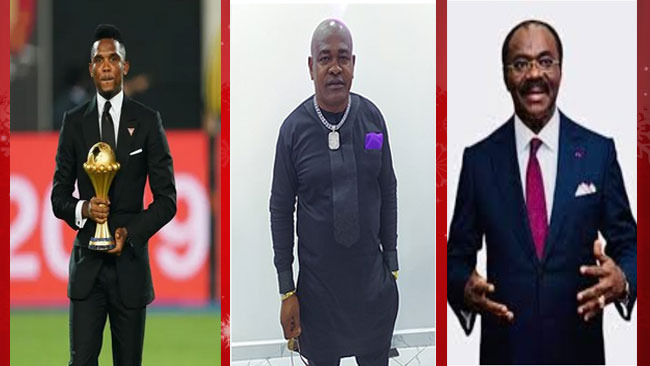










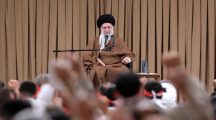






22, September 2018
‘Imagine in five years’: how education became a casualty of Southern Cameroon’s war 0
If Simon had the chance to tell his class about his summer holidays, the seven-year-old Simon would no doubt mention the large tarpaulin sack that for almost four months served as his sleeping bag and his magic carpet.
When the family fled their home in the town of Batibo, in Cameroon’s north west, his mother used grain bags to carry her two youngest children as Simon ran alongside. Later, out in the open jungle, all three children slept inside the bags.
“It protected them from the snakes and the mosquitoes,” says Rebecca, Simon’s mother, 25, her voice still sounding panicked as she describes the exodus and the stray bullets she feared could hit her children.
But Simon will not be telling any summer holiday stories this year. Like tens of thousands of other Cameroonian children, school has been suspended for yet another year.
The crisis in Cameroon’s two English-speaking regions – the north-west and south-west – began in October 2016 with peaceful protests by lawyers and teachers demanding the wider use of English, rather than French, in local courtrooms and schools, as well as more English-speaking school teachers, adherence to a dual legal system and a fairer allocation of resources.
But the situation has spiralled out of control amid a vicious war of kidnapping, decapitations and the burning of entire villages.
Classrooms have become part of the ongoing warfare between the government and separatist forces. School attendance is compulsory for all Cameroonian children until the age of 12, but gunshots on the streets and threats from separatist forces mean many are denied this right.
In recent months, teachers who dared to show up for work have been killed, and buildings burned. This week an unknown group of men stormed a school in Buea, capital of the south-west region, attacking students and teachers with machetes and guns. This followed reports that on 3 September, the first day of the academic year, gunmen attacked a secondary school in the town of Bafut, about 25km from Bamenda, the capital of the north-west region, kidnapping five pupils.
Condemning such incidents, Jacques Boyer, who represents Unicef, the UN children’s agency, in Cameroon, said: “All children in the north-west and south-west regions – like any other children across the country – must be able to go to school in peace.”
Unicef estimates published this month show that, of more than 300 million five- to 17-year-olds not in school worldwide, one-third live in conflict areas.
But Unicef is not providing any educational support for people living in the affected regions and there appears to be little help from other organisations. Cameroonians are being left to get on with things themselves.
The country’s two Anglophone regions are home to approximately a fifth of the country’s population, estimated at 23 million. More than 180,000 people have fled their homes in the Anglophone areas, and families are growing increasingly anxious about the impact of missed schooling on their children.
“Imagine five years from now, the children still not going to school – what will happen to them?” says Bridget, 50, a retired nurse who fled her north-west hometown. “They will become a terror group fighting the government.”
Such fears may already be a reality. Claire, 38, from Kumbo, north-west region, says children she used to see in her church now run around the neighbourhood with guns.
“One of their leaders is a girl whose grandmother was burned alive in her home [by government forces],” she says. “Now she’s one of the ones giving orders.”
Today, she can shoot a gun. “But what will happen to her when she is arrested?” says Claire.
There are also worries that lack of schooling will increase already high teenage pregnancy rates. According to the Cameroon Medical Council, one in four pregnancies in the country are among school-age girls.
Though there are no official statistics, parents from the north-west region who have fled to the capital, Yaoundé, say they have noticed more pregnant teenagers. With shops and businesses closed, schoolgirls are looking for cleaning or babysitting jobs, leaving them at risk to abuse.
More affluent families have sent their children to schools in the French-speaking parts of the country, and cities like Douala and Yaoundé are beginning to feel the squeeze.
Sandrine, 17, a student at Deido billingual high school in Douala, says class sizes have increased considerably. “In theory, there are supposed to be around 40 students in a classroom, but that’s a joke,” she said. “It’s more like a hundred.”
During last summer’s exams season, she said students had to turn up extra early to claim a desk or face being turned away.
For those stuck in the crisis-ridden regions, private education – which is becoming ever more expensive – is the only option, says Frances, a mother of one in Kumba.
“The teacher charges 30,000 [West African CFA] francs per month, so for nine months the fees will be 270,000 francs (£370), while school used to cost just 90,000 per year,” she says.
Organising home schooling is not always possible, adds Frances, since group gatherings of more than five people can attract the attention of the authorities.
“I haven’t got a job, and I can’t afford the school fees,” she says. She does not speak French, the working language in the capital. She is afraid people will turn on her when they realise where she is from.
“We are too afraid to even go outside and speak English,” she says. Other mothers nod in agreement. Surveying the calm Yaoundé traffic, Claire, about to return to Kumbo, says she fears young people in her hometown will be a lost generation. “You can sacrifice anything, but not the future of the children.”
*All names have been changed at the request of the interviewees, who feared repercussions if identified.
Source: The Guardian